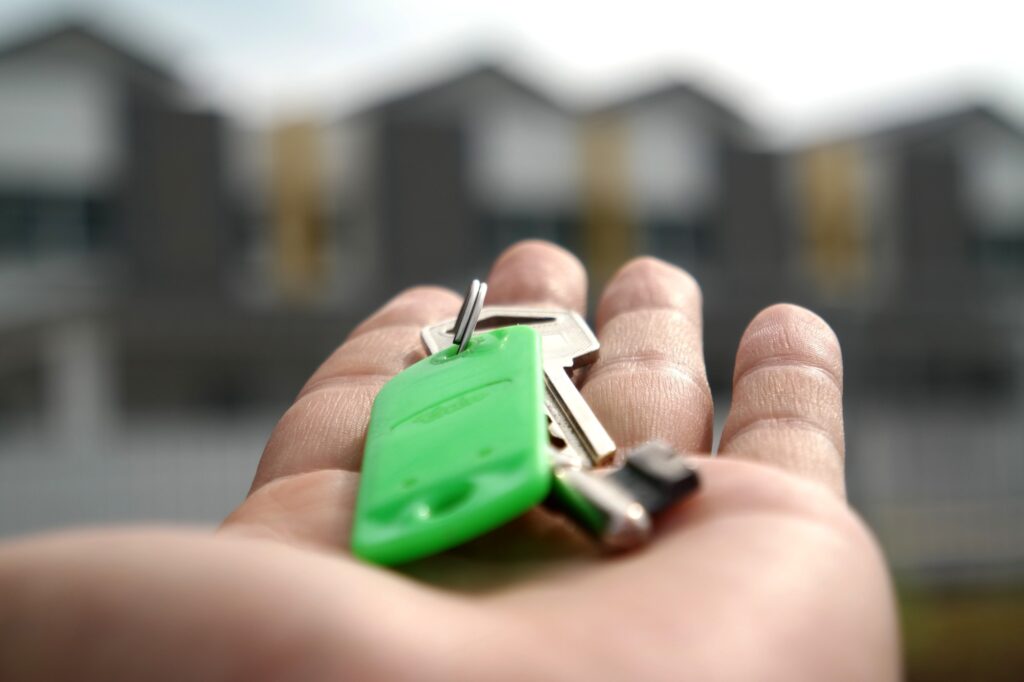Buying an Apartment vs. House: What You Need to Know
The 2021 real estate market continues to make headlines on a daily basis. The reason why is because of soaring home prices.
The median home price in the United States hit $380,000 in September. In California, the median price is above $726,000.
Buyers are looking for opportunities to purchase property, but spending close to $400,000 on a home puts the dream of homeownership out of reach for many.
There are alternatives, like buying an apartment. How do buying an apartment vs. house compare? Is buying an apartment a viable option for buyers?
Interest rates are still at record lows, and inventory is still low. You still might be able to take advantage of buying property without overpaying for the property.
What’s the right property for you? Read on as we explore the differences between apartment living and buying a home and how you can get into the right property for you.
Types of Properties to Buy
It helps to get clear about the different types of properties available. There are terms that are used interchangeably, but they don’t necessarily mean the same thing.
For instance, you’re probably aware of condos, townhomes, and apartments. They’re pretty similar, but there are stark differences between them.
An apartment usually refers to a rental property in a shared building. The building is owned by a company. The company leases the units within the building.
A condo is like an apartment, but there are differences in ownership. Condos owners own each individual unit within a building. If people talk about buying an apartment, they’re usually referring to a condo.
They own the interior of the property. The exterior of the building and common areas are the shared responsibility of the owners within the building.
Condos usually have homeowner’s associations (HOAs). The HOA is an organization that oversees the maintenance and develops a common set of rules for owners to follow.
When you buy a condo, you’re automatically agreeing to abide by these rules. The HOA gets funded by community fees that owners pay on top of the mortgage.
Townhomes are similar to apartments and condos. These are attached single-family homes that have an upstairs area and a downstairs area.
They have more room than condos and apartments. The ownership structure is like a condo, where people own individual units and have an HOA.
A home refers to a single-family detached home. This type of home is what people usually think of when they say they’re buying a home.
What Happened to Starter Homes?
Families used to be able to purchase starter homes. These were smaller, more affordable homes that were perfect for couples and young families.
A family could start off in the home, sell it, and purchase a larger home as their incomes and needs grew. These homes are scarce across the country.
Zoning laws didn’t make it profitable for builders to build smaller, more affordable properties.
Many starter homes were torn down and replaced with larger properties. These homes could sell for much more money and they were in high demand.
Since starter homes aren’t an option for buyers, they have to dive right into the deep end of the real estate pool. Everyone has to compete for homes approaching $400,000.
How to Find the Right Type of Property
How do you know which type of property is right for you? It’s time to do a little soul searching and take a realistic view of your finances.
The first part is financial. Buying a home, condo, and single-family home have different initial investment requirements.
Lenders usually ask for a 20% down payment on a property purchase. Single-family homes have higher price points than condos and townhomes, making the initial investment more expensive.
You’ll have to take out a larger loan for a home than you would for a condo or townhome. Your monthly payments will be bigger.
Maintenance is another consideration. Owning a home means you’re responsible for all property maintenance. Landscaping, roofing, and home siding are a big part of that.
You also have the interior plumbing and electricity to worry about. These can add up to major expenses.
Condo and townhome owners pay money to the HOA. The HOA handles common area maintenance, such as window washing, painting, and landscaping.
You’re responsible for maintenance issues within your unit.
How much control do you want over your property? Since an HOA has rules and regulations, you only have so much control over your property.
If you want to have people over for a gathering, you could violate quiet hours rules. There could be rules against hanging holiday lights around your windows.
Does buying a home still make good financial sense? It does for several reasons. The first is that you have privacy and control over the entire property.
If you want to paint the exterior of the home, you can do so.
Tips for Buying a Property
How can you make sure you get into the right property that meets your needs? Start by working with a knowledgeable real estate agent in your area.
They’ll have access to a wide network of professionals, including lenders, who will help you get the financing for your home.
Know what your dealbreakers are in a property. You might need more space in the kitchen or a nice yard. Agents find this information valuable so they can look for the perfect property for you.
Buying an Apartment vs. House
Which is better for you, buying an apartment vs. house? It ultimately depends on your needs and your budget. There are still plenty of advantages to buying a home, even in this crazy real estate market.
If you prefer to live in a downtown location and don’t mind dealing with an HOA, you could purchase an apartment, condo, or townhouse.
Do you want more real estate insights? Be sure to visit the blog for more helpful real estate articles.
